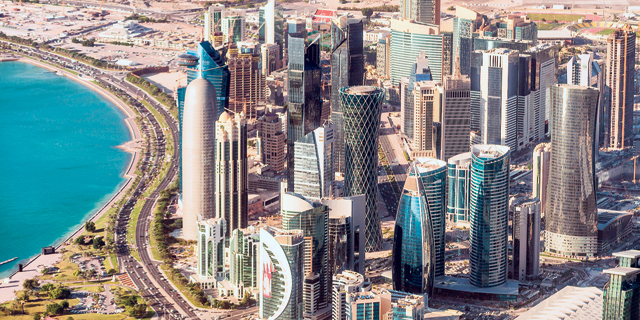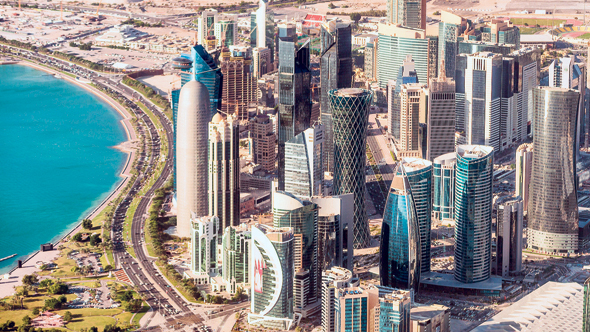
Qatar's Rearmament Efforts Are Leverage Against Boycott
Qatar has recently presented Chinese-made ballistic missile launchers during a military parade, demonstrating its strong ties with China and its military aspirations against the backdrop of the Gulf crisis
Dr. Shaul Shay, Israel Defense | 17:33, 26.12.17
During its national day parade on December 15, Qatar showcased Chinese-made SY400 BP-12A short-range guided ballistic missile launchers, which have a range of about 400 kilometers and could be fitted with different types of warheads.
For daily updates, subscribe to our newsletter by clicking here.
Qatar-China ties have strengthened considerably in recent years. Last year, Qatar supplied 19% of China’s imported liquefied natural gas (LNG), making Qatar China’s second-largest supplier of gas after Australia. With its dependency on Qatari LNG, China is keen to improve its balance of trade with Qatar through military technology and arms sales. On June 5, Bahrain, Egypt, Saudi Arabia and the United Arab Emirates cut ties with Qatar, reportedly due to Qatar's alleged support for terror groups in the region and its close relationship with Iran. They also launched an economic boycott, preventing Qatar Airways flights from using their airspace, closing off Qatar’s land border with Saudi Arabia and blocking Qatari ships from using their ports. Qatar refused to comply with a list of 13 demands, saying it would not agree to any measures that threatened its sovereignty or violated international law. Qatar's boycotting neighbors have since communicated they want it to accept six broad principles on combating extremism and terrorism. On the background of this crisis in the Gulf, Qatar's Emir, Sheikh Tamim bin Hamad al-Thani, concluded that Qatar's past strategy of emphasizing soft power is insufficient to guarantee its security. As a result, Qatar has radically increased its arms purchases and became the world's third-biggest military spender following Saudi Arabia and India.Related stories
This article was originally published on Israel Defense .

No Comments Add Comment